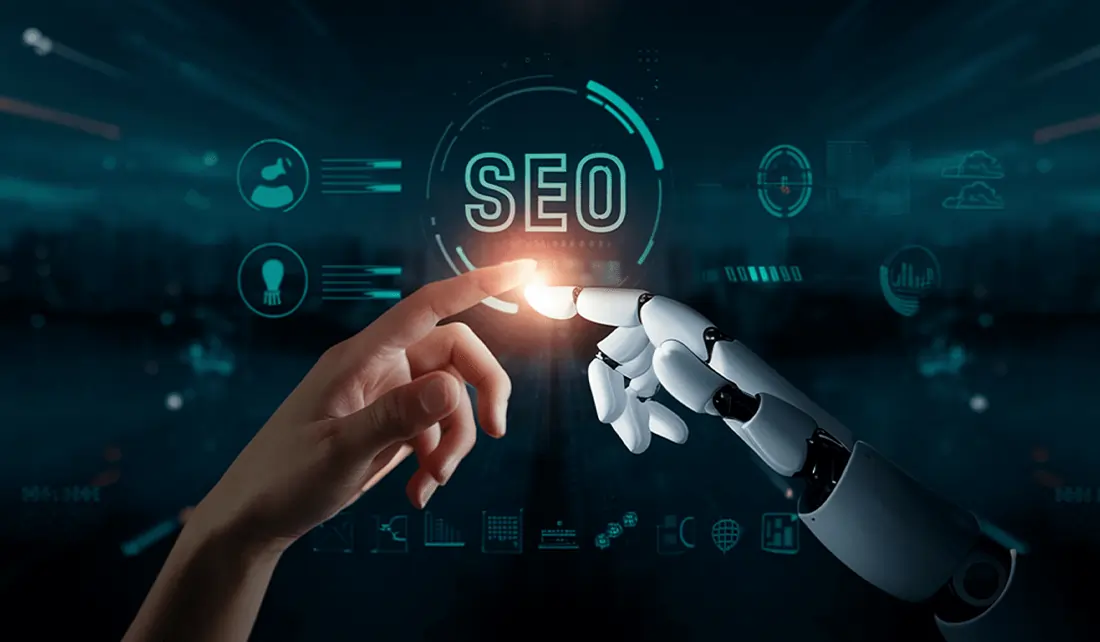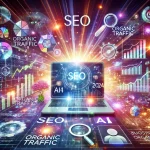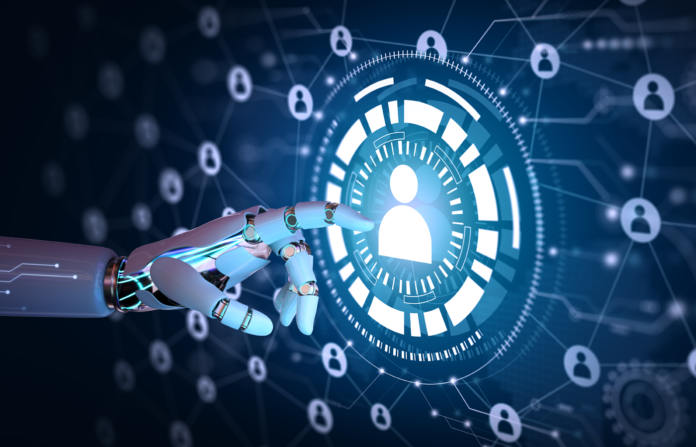Impact of AI on SEO: Revolutionizing Digital Marketing Education
The impact of AI on SEO now redefines how marketers, students, and educators approach digital marketing. AI isn’t just a tool—it’s transforming fundamentals.
Search engines increasingly use AI models to interpret queries, rank results, and generate summaries. This shift demands new strategies.
Educational curricula must evolve. Courses must teach AI alignment, intent modeling, and technical SEO with AI interplay.
How AI Changes Search & Rankings
AI-driven search engines prioritize user intent over exact keyword matching. They focus on context, semantics, and topic depth.
Features like AI Overviews generate answers directly on the results page. That reduces clicks to websites.
In fact, AI Overviews could reduce organic traffic by 18–64% for informational content. Sites must adapt.
AI systems also favor structured data, clear headings, and query-relevant snippets. That shifts focus to content formatting.
AI Tools Rewriting SEO Workflows
Today, AI tools help with keyword research, content outlines, and topic clustering. They analyze large datasets faster than manual methods.
Marketers use tools to suggest meta tags, optimize readability, and find internal linking opportunities.
Yet, these tools require human judgment. Strategy, tone, and expertise still come from humans.
Educational Implications: What Learners Must Learn
Digital marketing students must understand how AI models parse and rank content.
They must learn to write for humans and AI systems—balancing creativity with algorithmic requirements.
Curricula should add modules on Answer Engine Optimization (AEO) and Generative Engine Optimization (GEO). These fields aim to ensure content appears in AI-generated answers.
Learners should also explore ethics: AI hallucination, misinformation, and fairness.
Practical labs should teach using AI tools for SEO audits and content generation, combined with human edits.
Challenges & Risks in the AI-SEO Landscape
One major challenge is content saturation. Many sites will use AI tools, leading to repetitive, low-value content flooding the web.
Search engines will penalize shallow or duplicated content. Originality, authority, and depth will matter more than ever.
Another risk: republishing AI-generated material without fact checks can lead to errors or misinformation.
Traffic volatility is also a concern. Algorithms change, AI summaries shift, and rankings may fluctuate widely.
Strategies to Thrive in This New Era
To succeed in the age of AI-SEO, content creators and educators should:
- Focus on authority & experience
Build domain expertise, include case studies, personal insights, expert quotes. AI can’t replicate lived experience. - Optimize for AI features
Use structured content (Q&A format, bullets), schema markup, and clear headings to aid AI summarization. - Topic clustering & depth
Build content clusters around core themes, not just individual pages. Show comprehensive coverage. - Hybrid workflows (AI + human)
Use AI for ideation, drafts, and audits. Humans refine, add nuance, storytelling, accuracy. - Monitor performance with new metrics
Track AI-driven impressions, attribution in LLMs, and how often your content shows in AI answers. - Stay updated
AI models, search algorithms, and SEO best practices evolve fast. Keep learning and adapting.
Real Examples & Data
A 2025 Search Engine Land survey showed 82% of users find AI-powered search more helpful than traditional SERPs.
Companies adopting AI tools improved efficiency in content creation, technical audits, and competitive insights.
However, a HubSpot study showed AI-generated content only improves performance when well-edited and strategically aligned.
This reinforces that AI is an accelerator, not a replacement.
Future Outlook: AI + SEO & Digital Marketing Education
In the coming years, SEO will merge deeply with AI and generative search. Visibility will depend on citation by AI agents.
Educational institutions that integrate AI-SEO training will produce professionals ready for the evolving job market.
Digital marketing roles will shift: strategy, prompt engineering, content oversight, and AI audit will become essential skills.
AI systems might evolve into agents that write, optimize, and deploy content automatically. Preparing students for that world is vital now.







